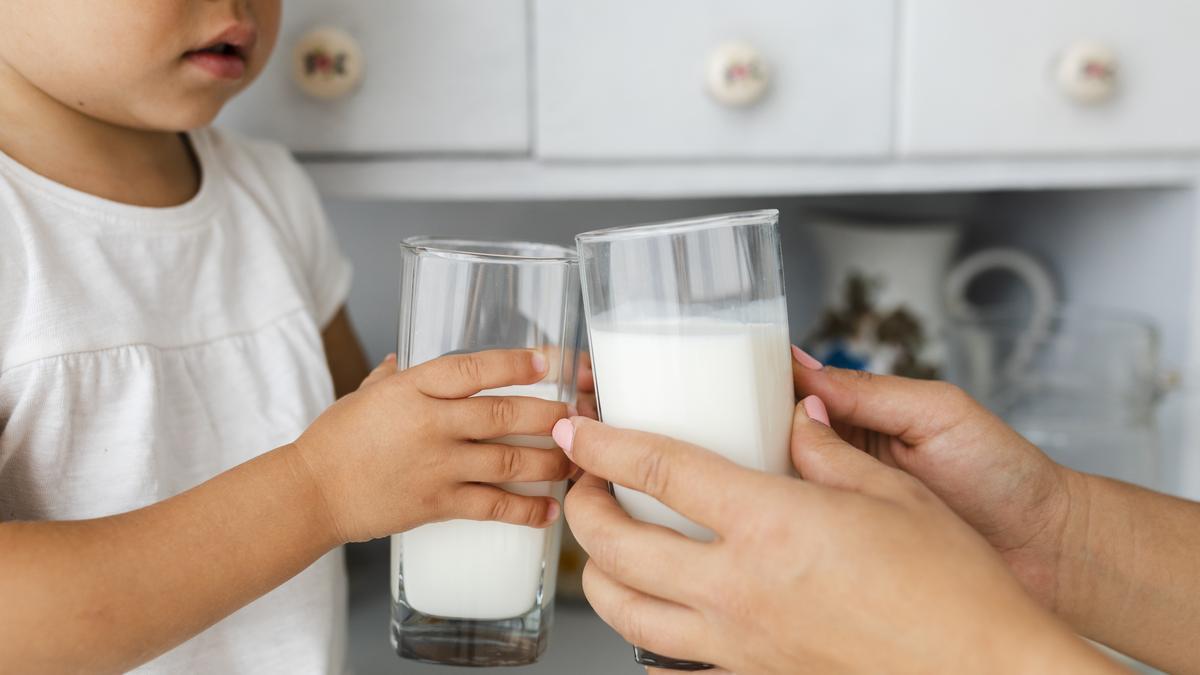The milk It’s one of the most important foods of our lives and today, like every June 1st, World Milk Day is celebrated.
We are talking about the first food of our life. And we will generally continue to take it at all stages, from growth to adulthood.
The history of milk in our civilization
According to a study by University College London (UCL), and published in the scientific journal PLOS Computational Biologymilk began to be consumed 7,500 years ago in Central Europe.
And this is due to a genetic change: the persistence of lactase, an enzyme that is produced in the small intestine and is essential in the lactose conversion process, but which is “absent” in other areas of the world.
Without a doubt, milk has been an advance in nutrition and has been key to the survival of humans.
-
It not only provides energy for its high lactose and fat content (lower percentage if we talk about semi or skimmed milk), also because it is a important source of calcium and vitamins. Riboflavin (B2), vitamin A and D and Cyanocobalamin (B12).
“It is a prevention factor in certain pathologies such as cardiovascular disease, some types of cancer or high blood pressure”
Specialists recommend a daily intake of 2-3 servings of milk. Thus, most of the calcium needs are covered. A single glass contains 100 mg/100 ml.
The Dr. Elena Fernándezfamily doctor and member of the Spanish Society of Primary Care Physicians (SEMERGEN), in the study ‘Nutritional and metabolic importance of milk’explains the other benefits of this food, beyond its nutritional value.
-
“Milk constitutes a prevention factor in certain pathologies tributaries such as:
-
Some types of cancer
-
In bone or dental pathology.
-
It can also contribute to the fight against childhood overweight and obesity.”
And for this it is based on the DASH dietwhich is characterized by being low in salt and high in fruits, vegetables, whole grains, low-fat dairy and lean proteins.
Or the Mediterranean diet, in which they replace red meat with fish. A type of diet that has a direct relationship with lower risk of coronary heart disease and stroke.
-
“The high intakes of dairy proteinspotassium, magnesium and calcium have been linked to a reducing the risk of stroke and ischemic heart disease“,
indicates the study, in which other authors such as José Alfredo Martínez, Professor of Nutritionor the pediatrician Venancio Martínez.
And its benefits do not stop there.
-
Also prevents cancer and its consumption is safe
-
But, of course, The greatest advantages of milk fall on the health of bones and teeth.
Daily intake of calcium from low-fat dairy products is effective in weight loss
“A high milk intake during adolescence has been associated with a higher bone mineral content in the lumbar spine,” they point out.
And the calcium in milk, along with fluoride, is vital for the proper development of teeth and to “keep them healthy.”
Milk, a remedy against obesity?
Obesity is a public health problem in Spain and in the world. The latest report from the Spanish Obesity Society (SEEDO) shows this.
More than half of our country’s population is overweight or obese.
The average Body Mass Index (BMI) of the respondents is 25.97. What is considered above normal, that is, overweight.
But, Do dairy products make you fat? No.
-
“Numerous experimental and epidemiological studies have shown that Daily intake of calcium from low-fat dairy products is effective in weight lossand that calcium metabolism can contribute to energy balance and, therefore, play a role in weight control.
At what age should I stop drinking milk?
Fernández emphasizes that milk stands out for its nutritional value and its preventive factor against certain diseases. Becoming one of the best “existing beverages on the market”.
-
The lactose intolerance and milk protein allergywhich could affect 15% of adults, “cannot be understood as arguments to disregard its consumption because both problems, in addition to presenting low incidencethey can perfectly be controllable and treatable”.
And although the myths surrounding milk have increased in recent years, while consumption has decreased (70 liters per Spaniard per year), specialists clarify:
-
“His regular consumption, throughout the different stages of life“It is necessary to maintain an adequate level of health and quality of life.”
Therefore, it is essential from the growth stage (childhood, adolescence…), adulthood and old age.
“Its industrial processing has allowed widespread access to its consumption by the population, which has contributed to significantly improving their level of health,” they emphasize.

